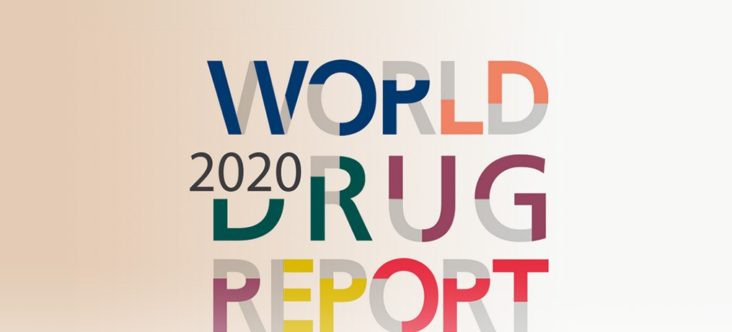COVID-19 Crisis And Economic Downturn Threaten To Compound Drug Dangers Further Still, Warns World Drug Report 2020

More than 35 million people around the world now suffer from drug addiction, according to the latest annual report on the scourge, from the UN Office on Drugs and Crime, UNODC, released ahead of the International Day Against Drug Abuse and Illicit Trafficking, which also analyses the far-reaching impact of the coronavirus pandemic on global drug markets.
According to UNODC’s World Drug Report 2020, some 269 million people abused drugs in 2018 – a 30 percent jump from 2009.
“Vulnerable and marginalised groups, youth, women and the poor pay the price for the world drug problem,” UNODC Executive Director Ghada Waly said.
While the impact of COVID-19 on illegal drug supplies is not yet fully known, border and other restrictions linked to the pandemic have already caused drug shortages on the street, that have diminished purity, while leading to price hikes.
Meanwhile rising unemployment and plummeting opportunities are expected to disproportionately affect the poorest, making them more vulnerable to drug use, trafficking and cultivation, to earn money so they can survive the global recession.
“The COVID-19 crisis and economic downturn threaten to compound drug dangers further still, when our health and social systems have been brought to the brink and our societies are struggling to cope,” added Ms. Waly.
As COVID-19 is prompting traffickers to find new routes and methods, illicit activities via the so-called ‘darknet’ and shipments by mail, may increase, according to the report.
And based on data from 69 countries covering the period between 2014 and 2018, cannabis accounts for more than half of all drug offences registered.
While the availability of medical opioids varies across the globe, the report points out that low-income countries still suffer a critical shortage of therapeutics for pain management and palliative care.
In 2018, more than 90 per cent of pharmaceutical opioids were made available for just 12 per cent of the global population, based in high-income countries. Meanwhile, 88 per cent of the global population in low and middle-income countries consumed less than 10 per cent.
Legislation, culture, health systems and prescribing practices, are all important factors in accessing pharmaceutical opioids, the report says.
”The COVID-19 crisis has intensified these challenges further still, overwhelming health systems and exposing the fragility of institutions and social safety nets,” said Waly in her message on International Day Against Drug Abuse and Illicit Trafficking on 26th June.
The theme of this year’s International Day against Drug Abuse and Illicit Trafficking, “Better Knowledge for Better Care,” she noted highlights the need to understand drug dynamics trapping so many millions of people in a downward spiral, to inform balanced solutions that are based on scientific evidence, to know better what the issues are and to provide better care for those who need it.
”Together, we can pursue more effective prevention and protection, to build resilience as we build back better, and leave no one behind.” “We need all Governments to show greater solidarity and provide support, to developing countries most of all, to tackle illicit drug trafficking and offer evidence-based services for drug use disorders and related diseases, so we can achieve the Sustainable Development Goals, promote justice and leave no one behind,” concluded the UNODC chief.



